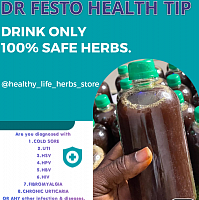Please scroll down, click on the indicator below to navigate to next page, and you can also click on menu bar for more options.
Here are some of the natural herbs used in healing sicknesses already discussed.
Basil (Akoko Mesa):
Ocimum Gratissimum (Nchanwu or Efirin Leaf):
This leaf extracts exhibit anti-fungal activities on all the fungi tested. Nchanwu plants are of high importance to the health of individuals and the society at large. This plant has huge medicinal values that depend on certain active chemical substances, which have physiological impact on the human body. These vital bio active substances include; tannin’s, oligonucleotides, phenol, flavonoids and alkaloids.
The leaf can be used in the treatment of cough and catarrh when inhaled, it can be infused and used as a remedy for stomach disorder such as gastroenteritis, diarrhea, cholera, chronic dysentery and vomiting. It can also act as a repellent to mosquitoes and other insects. It can be used for preventing and treating malaria, convulsion, skin diseases, ringworm, urinary infections and gonorrhea. The oil can be used as food preservative due to its anti-microbial and anti-bacterial properties.
Neem (Melia Azadirachta):
Only few are aware about neem and know that it is an integral part of Ayurveda for the benefits associated with it. The beneficial properties of Neem (Azadirachta indica A. Juss) have been recognized in the Indian tradition for thousands of years. Each part of the Neem tree has some medicinal property. It is a herb that is commonly available, throughout the year and has benefits that only a few natural products can provide.
Neem has anti bacterial; anti parasitic, anti- fungal, anti-inflammatory and analgesic properties that not only benefits your health but can help you get rid of common beauty problems that you face in your daily life. All parts of neem are used for preparing many different medicines, especially for skin disease.
Neem leaf is used for leprosy, eye disorders, bloody nose, intestinal worms, stomach upset, loss of appetite, skin ulcers, diseases of the heart and blood vessels (cardiovascular disease), fever, diabetes, gum disease (gingivitis), asthma, diarrhea and liver problems.
The leaf is also used for birth control and to carry out abortions. Various parts of the Neem tree have been used as traditional Ayurvedic medicine in India. Neem oil and the bark and leaf extracts have been therapeutically used as folk medicine to control leprosy, intestinal elephantiasis, respiratory disorders, constipation and also as a general health promoter.
Neem which is rich in Vitamin C also helps in getting rid of skin problems like blackheads, pigmentation, dullness and ageing thus leaving the skin with a youthful glow.
Some Ayurvedic use of Neem:
Leaf: Leprosy, eye problem, epistaxis, intestinal worms, anorexia, biliousness, skin ulcers,
Bark: Analgesic, alternative and curative of fever.
Flower : Bile suppression, elimination of intestinal worms and phlegm.
Fruit: Piles, intestinal worms, urinary disorder, epistaxis, phlegm, eye problem, diabetes, wounds and leprosy.
Twig: Cough, asthma, piles, phantom tumor, intestinal worms, spermatorrhea, obstinate urinary disorder, diabetes.
Gum: Scabies, wounds, ulcers, skin diseases.
Seed: Leprosy and intestinal worms.
Oil: Leprosy and intestinal worms.
Root: Bareness, Impotence, fibroid etc.


